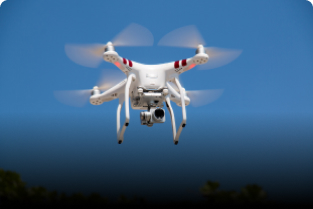Drones, or Unmanned Aerial Vehicles (UAVs), have revolutionized industries such as agriculture, defense, logistics, filmmaking, and more. As the demand for drones grows, so does the need for skilled drone engineers. These professionals design, build, and maintain drones, combining expertise in robotics, electronics, and aerodynamics. If you’re interested in pursuing a career in this cutting-edge field, here’s a comprehensive guide to becoming a drone engineer.
1. Understand the Role of a Drone Engineer
Drone engineers are responsible for various tasks, including:
- Designing drone systems (hardware and software).
- Developing flight control systems and GPS navigation.
- Conducting tests and troubleshooting technical issues.
- Ensuring compliance with aviation regulations.
- Innovating new drone applications and technologies.
Understanding the technical and practical aspects of this role is key to preparing for a career in drone engineering.
2. Educational Requirements
A strong foundation in science and technology is essential. Start with:
High School
- Focus on subjects like mathematics, physics, and computer science.
- Participate in science fairs or robotics clubs to build relevant skills.
Undergraduate Degree
- Pursue a bachelor’s degree in fields such as:
- Aerospace Engineering
- Mechanical Engineering
- Electrical/Electronics Engineering
- Robotics
- Some universities offer specialized courses in drone technology or UAV engineering.
Advanced Studies
For career advancement, consider a master’s degree in aerospace engineering, robotics, or a related field, with a focus on UAV technology.
3. Gain Technical Skills
Drone engineering requires a blend of skills in hardware and software. Key areas to focus on include:
- Aerodynamics: Learn how drones achieve lift, stability, and maneuverability.
- Electronics: Understand sensors, actuators, and microcontrollers used in drones.
- Programming: Gain proficiency in languages like Python, C++, or Java for drone software development.
- CAD Design: Use tools like AutoCAD or SolidWorks to design drone prototypes.
- Embedded Systems: Study microcontroller programming for flight control and communication systems.
Hands-on projects and internships can help you develop these skills practically.
4. Obtain Drone-Specific Certifications
Certifications can boost your credentials and provide specialized knowledge. Some popular options include:
- FAA Remote Pilot Certification (for U.S. residents): A requirement for operating drones commercially.
- UAV Pilot Training: Offered by institutions worldwide to teach drone operation.
- Specialized certifications in drone design, manufacturing, and maintenance from organizations like the Drone Council of India (DCI) or Global Drone Training Academy.
5. Build Hands-On Experience
Practical experience is critical to becoming a drone engineer. Ways to gain experience include:
- Drone Kits: Start with DIY drone kits to understand assembly and operation.
- Competitions: Participate in drone design and flying competitions like those organized by SAE or DRDO.
- Internships: Work with drone manufacturing companies, research labs, or defense organizations.
- Personal Projects: Build your own drones or work on open-source projects to showcase your skills.
6. Stay Updated on Industry Trends
The drone industry is rapidly evolving, with new technologies and regulations emerging regularly. Stay informed by:
- Following news about drone advancements and applications.
- Attending drone expos, webinars, and conferences.
- Joining online forums and communities such as DIY Drones or UAV Coach.
7. Explore Career Opportunities
Drone engineers have a wide range of career paths to choose from:
- Aerospace Companies: Work on cutting-edge UAV designs and prototypes.
- Agriculture: Develop drones for precision farming and crop monitoring.
- Defense and Security: Build drones for surveillance, reconnaissance, and combat operations.
- Delivery and Logistics: Innovate UAVs for package delivery services.
- Film and Media: Design drones for aerial photography and videography.
Start with entry-level roles such as UAV technician or junior engineer and advance to senior design and project management positions.
8. Consider Starting Your Own Venture
If you’re entrepreneurial, consider starting a drone-related business. Opportunities include:
- Manufacturing custom drones.
- Providing drone maintenance and repair services.
- Offering drone-based solutions for industries like agriculture, surveying, or real estate.
Conclusion
Becoming a drone engineer is a thrilling and rewarding journey that blends creativity, innovation, and technical expertise. With the right education, skills, and practical experience, you can excel in this rapidly expanding field. As drones continue to transform industries, now is the perfect time to embark on this high-flying career path!

